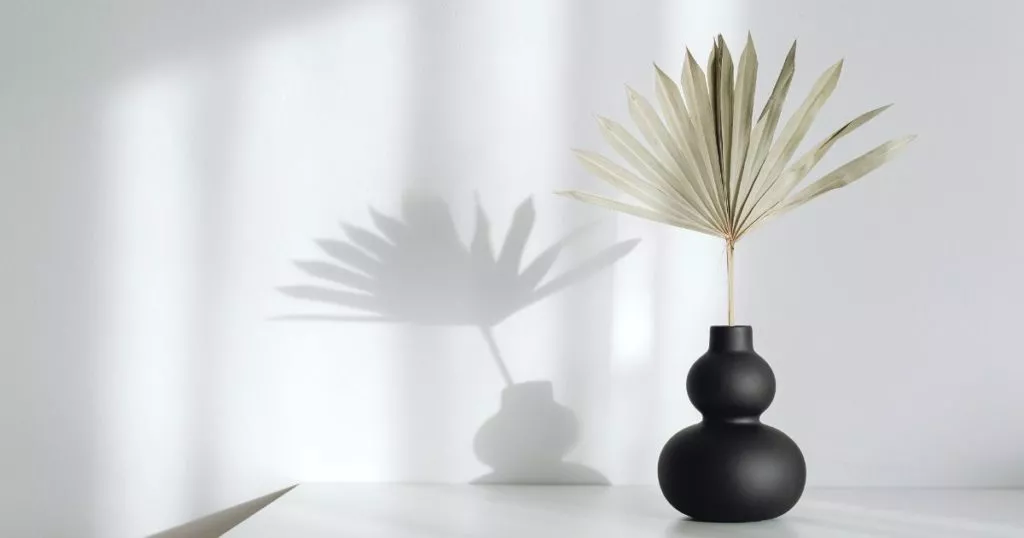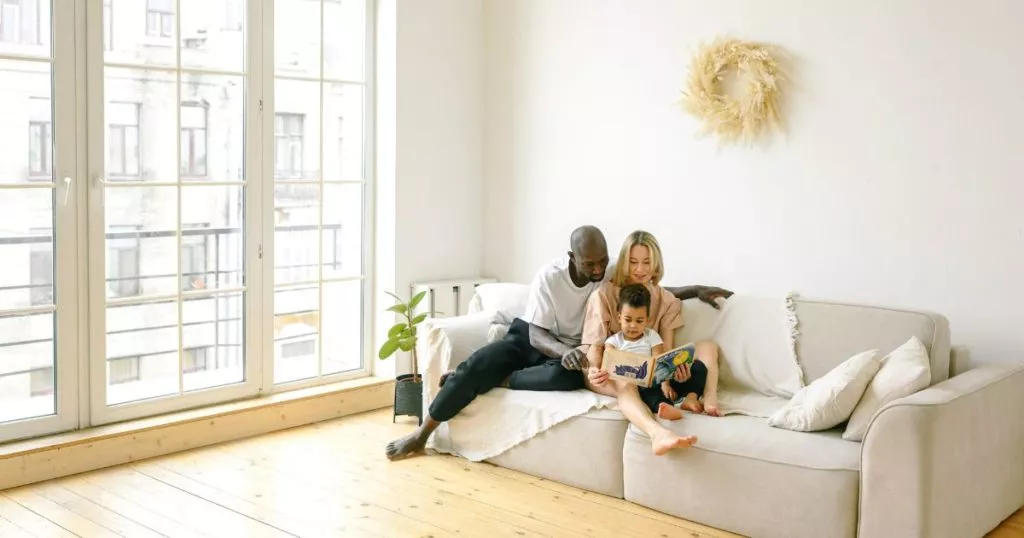Your way of living is an extension of who you are; the way you dress and the way you set up your home. While the minimalist lifestyle may not be everyone's cup of tea, it has a way of making your life more meaningful.
People tend to go about their lives carrying heavy baggage on their shoulders. For some, the only way to cope with it is by collecting stuff to fill their environment. But you can't live like that for too long because it'll affect your wellbeing. So adopting a minimalist mindset may be your ticket to heal and regain balance.
There are no rules to minimalist living, but this guide will give you an idea about this practice.
What is the minimalist lifestyle?
You may have heard of minimalism on your social feed. But what does it really mean? So to understand the meaning of minimalist lifestyle, you must understand its history.
Minimalist lifestyle is nothing new. The term may be, but it's an ancient practice that dates back to the time of Socrates, Plato, and Seneca. They understood that the lack of stuff doesn't make you poor, but your mindset does.
Japanese culture and philosophy also shaped Western adaptations of minimalism. Their idea that you can achieve inner freedom by valuing simplicity by finding beauty in objects without manipulating its natural state. They call this concept wabi-sabi.
Truth be told, buying material things excessively is a way for some people to cope with stress.
People often have the idea that having more stuff makes them happier and more secure. And our society only perpetuates this cycle. However, more and more individuals are now opening their eyes to reality. They're starting to understand that the happiness they seek from material possessions is fleeting. The positive feelings they get after shopping fades quickly.
So to answer the question, of what is the minimalist lifestyle, it is a practice, a mindset, and a process of prioritizing what's important to you. It doesn't merely include objects and stuff. Instead, it involves refocusing your attention and energy on intentional choices that you allow into your life.

What are the benefits of a minimalist lifestyle?
We live in a world that prides itself on the concept of having more means you're successful. But how happy are these people with that definition of success? In fact, materialism doesn't make you any happier. It's just a way for people to cover up their insecurities. So if you're ready to regain control over your life, here are some benefits of having a minimalist lifestyle to think about:
1. You have more time
One of the life-changing benefits of minimalist living is having more time and energy because you have fewer things to clean. In contrast, owning more stuff takes up time from your schedule come spring cleaning.
Aside from this mundane advantage of minimalism, you have more time for other productive activities if you don't focus your time on shopping.
2. You save more money
Minimalist living lets you think twice before spending your money. It makes you prioritize your needs over your wants. Without the drive to buy the next fad, you rank up your savings for your long-term goals.
3. You gain a new found focus
Clutter has a psychological side effect on people. It robs your creativity and makes you less productive. But if you have less stuff lying around the house, you reduce visual stimulation. Thus your brain feels organized as well, since it thrives when there's order.
Because your focus isn't on material possessions anymore, you're no longer a slave to marketing tactics that give you a false sense of happiness.
4. Improved self-confidence
Many people suffer from their insecurities. So they fill their lives with things to impress people they don't even like. But that's not how you improve your confidence. Minimalism teaches you not to compare what you have with what others do. It's the road to self-actualization because you invest your energy in self-improvement over your possessions.
5. You create room for what's important
Some people cling to material possessions because of the memories they hold, while others it's the idea of wealth that comes with it. But decluttering has a trickle-down effect on your health.
The more you tidy your environment, the better you become at processing mental clutter. Thus, having room for what's important like relationships and life's precious moments.
Common misconceptions about the minimalist lifestyle
Many people think that living a minimalist life is going against consumerism. Others see it as a popular interior design that incorporates functionality and modernist architecture. And some think it's merely a fashion statement.
In a sense, these misinterpretations of the minimalist lifestyle are both right and wrong because there is no clear cut regulation for it.
You can't put minimalism in a box since it's a philosophy. It's a mindset and a way of thinking that includes your habits, behavior, and thought patterns. So what you see physically is the abstract expression of it.
Here are the common misconceptions about the minimalist lifestyle:
1. Minimalists throw everything away.
This idea may be true to some extent. But Minimalists rationalize how they spend their time, energy, and resources on things that matter to them the most. While they do get rid of a lot of stuff, they still keep certain things that hold the most value.
2. Minimalists don't shop for new things.
That's the beauty of being a minimalist; they still buy new things. They just don't buy new stuff out of impulse. So when they shop, it's intended to replace things that are too old, worn out, or not a necessity anymore.
3. Minimalists count everything.
This common misconception of minimalist living is because of the 100-Thing Challenge that sparked a movement among people. Thus, the extreme minimalist idea of counting personal belongings surfaced. But not everyone in this culture practices this.
4. Minimalists are emotionless.
People who don't understand minimalists think they're emotionless. Just because they discard things that used to have sentimental value doesn't mean they lack emotions. To be honest, minimalists are soft-hearted. But they treasure memories over souvenir trinkets that end up in attics and basements.
5. Minimalists don't have any sense of style.
Most people are driven by what's new in the fashion industry, but not minimalists. They enjoy wearing and decorating their homes with timeless pieces rather than mainstream recommendations.
6. Living a minimalist lifestyle is not sustainable.
It's true that minimalists do away with their material things. Some simply don't throw them in the dump, but rather they donate them to charity. In fact, environmental concerns are one of the primary motivators for minimalists to make the lifestyle switch.

How to start living the minimalist lifestyle
Diving into the minimalist journey doesn't happen overnight. Instead, it's a continuous process of intentional promotion of things that matter the most. So if you find yourself drowning in a sea of clutter, this guide will show you how to find happiness by living simply:
1. Eliminate things that don't add value to your life
When de-cluttering your home, start small. Begin by removing 1-2 items room by room each week. This will help you gain momentum when you're ready to make the ultimate minimalism life shift. Perhaps you can start with a cup, old receipts, or those old worn out shoes.
2. Shop for quality, NOT quantity
Whenever you need anything new for yourself or your home, go for quality items that can last longer. Don't dwell too much on the price difference. You'll save money in the long run since you don't purchase things so frequently.
3. Cut down on single-use products
As you start to sort out your home, remove any single-use items and replace them with reusables. Swap out the things that you use everyday like water bottles, coffee cups, and cutlery. In fact, some coffee shops offer discounts if you bring a reusable coffee tumbler with you. Although this step may not apply for every minimalist.
4. Invest in experiences, NOT things
As you begin to adopt a minimalist life, prioritize memories and experiences over material things. With the money you saved up from not shopping all the time, buy yourself a ticket to a destination you've been dying to visit. Take a class on a hobby that you now have the time for.
5. Review your budget for unnecessary expenses
The average American coughs up $1,497 per month on unnecessary spending. But as you review your finances, cut out any nonessential expenses. You can use an expense tracker to help you in this process.
It's advisable to split your monthly income before you spend it. Doing so lets you question your intentions before spending your money on wants before your needs.
6. Constantly audit your life
Assess your current habits and review them wisely. If you feel like you have to spend your money on wants or impulses, reflect on how you feel first.
Sometimes stressed and lonely people shop because for them it's a form of escape. So always check in on yourself whenever you have the urge to use your energy on events, things, and even people that drain you.
7. Be grateful for what you have
Instead of spending your time and energy scrolling through online shopping apps, start journaling. Write down at least three things you're grateful to have in your life. Having this as part of your daily habits, can elevate your mood for what lies ahead. The more you begin to appreciate the little things that you have, the less your urge to overspend.
8. Let go of things you can't control
Often, people who don't have a sense of control tend to feel vulnerable. So they try to control and suppress their emotions through negative habits. But loosening your grip on things you can't control is never easy.
Focus your energy on what's important to you, like your wellbeing, relationships, and aspirations in life. Because letting go of control frees up your mental space.
Featured course: Embracing Minimalism in Your Life
Create your own definition of a minimalist life. This course will journey you through a relaxing guided meditation to reflect on your physical and mental space to show you what this lifestyle is all about. It'll open your eyes on how you can free your time, space, and energy on things that limit your potential.
In this timeless lecture that you can revisit no matter what stage you are in life, will help you assess your evolving priorities. By the end of this self-reflecting course, you will be able to reinvent yourself and your lifestyle.
Take this courseThere's freedom in minimalist lifestyle
Every minimalism journey is a unique experience, as each person has their own take on how they express it. With all the excess stuff lying around the house, we need to create space to find more clarity by living simply.
You can apply minimalism to almost all aspects of your life, your schedule, finances, home, and relationships. Therefore, giving you more space and energy on connections that have the most positive impact in your life.


